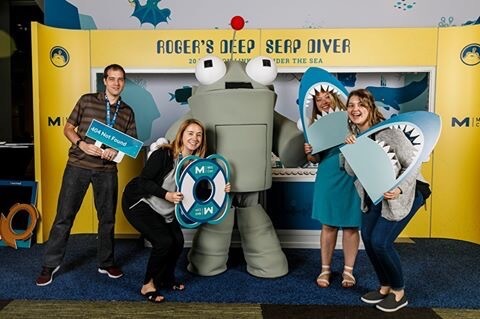This Summer I had the opportunity to go to MozCon for the second year in a row. Yes, the conference was a few months ago, but hey at least I got to this eventually!
Last year I wrote about my B2B SEO takeaways from MozCon, and while there were some more actionable SEO tips this year, I found myself particularly inspired by some of the talks about an area very close to my heart; linkbuilding.
I got my start in digital marketing as content marketer, started at Obility as a linkbuilding specialist, and have written numerous blog posts sharing my best linkbuilding tips, so it’s safe to say I know a fair amount about the topic. However, one of the best things about going to a conference is learning from the best of the best, and hearing new tactics and strategies that might not have crossed your mind before.
Building high-quality links is something every SEO knows is important, but actually doing it can be intimidating. Here are some of the best linkbuilding takeaways I took from MozCon this year.

Utilize the Power of Digital PR
One of the most difficult things about building links on an ongoing basis is the fact that linkbuilding tends to be inconsistent. You might get a response from your first email, or you might spend days promoting a piece of content and have little to nothing to show for it.
The problem with this inconsistency is that it means link building can take a long time to show results. When your link building doesn’t show results, you either slowly lose budget to other channels, or you get fired.
Luckily, Shannon McGuirk is here to save the day. She found a way to help solve this inconsistency by creating what she calls a “digital PR newsroom”.
For most link builders, we focus on creating what Shannon calls planned editorials. We create a piece of content with an idea of who we want to promote it to, we promote that content, and then we move on. While planned editorials are still important, we are missing out 66% of link building opportunities by stopping there.
The idea behind a digital PR newsroom is to go past planned editorials and to utilize planned reactive editorials and reactive editorials as well. If you’re not familiar with those terms, don’t worry, Shannon used a great example to help break it down.

Imagine that you are creating a piece of content about the booziest countries in the world and you plan to launch in January. You gather the data, put together the resource, and promote it to a list of relevant prospects when it launches. That is a planned editorial.
Looking ahead, you realize St. Patrick’s Day is coming up and journalists will be looking for related things to write about. What about taking that booziest countries resource and promoting it again in March, this time with a focus on Ireland’s place on the list? This is an example of planned reactive outreach.
Again, you might stop there. But lets say you check Twitter one day and realize there is a trending story about another country’s alcohol use. This is an opportunity for a reactive editorial. If you can find another way to spin that resource to be related to a trending story you have a whole new set of prospects to reach out to.
This is an approach any SEO can work into their link building. When you create a piece of content and promote it, your work isn’t done. Look ahead to upcoming awareness days or holidays when journalists will be seeking out things to write about on that theme. Plus, when those days come up again the following year you can update your data and promote your resource all over again. You should also keep on top of trending news. If you have something to add to the conversation, do it.
Collaborate with Content Creators
You might not know this, but I am part of the one percent. No, I am not talking about finances (unfortunately), I am talking about being a content creator.
According to Andy Crestodina’s fantastic MozCon presentation, only one percent of people are content creators. The other 99 percent are content consumers. People who don’t create content, don’t create links. This means that if you want to create links, you need to pay very special attention to and build relationships with that one percent.
One great way to build relationships with content creators is through guest posting. Yes, you heard me right. It is 2019 and I am telling you to guest post! Andy himself said that a third of all the articles he writes are guest posts. It helps gets your content in front of a new audience is a great opportunity to get to know another content creator in your space. If you’re not making friends, you’re doing it wrong.
Guest posting has come under fire as a strategy ever since way back in 2014 when Matt Cutts declared that guest posting to gain links was, essentially, dead. However, Matt later clarified that he was not talking about “high-quality multi-author blogs”. Guest posting can still be a great strategy, but you need to focus on quality and relevance.
Another way to collaborate with other content creators’ is to make sure you include contributor quotes every time you write a piece of content. This gives you an excuse to reach out to an expert and gives them an incentive to link to your completed article.
Remember, if you want links and mention, you need to link to and mention others. Linking to another content creator is a great way to open the door to a conversation. Let them know you included a link to their content and why. Star the conversation, and see if you can find a way to collaborate in the future.

Bonus Tip: Don’t know what guest post topics to pitch? Try writing an “evil twin” guest post. If you wrote a best practices post on your blog, pitch the “how not to” post to someone else.
Don’t Seem, Be
Russ Jones ended day one of MozCon with a presentation that I think should be required viewing for every person working in SEO, whether they do linkbuilding or not.
To start things off, Russ referenced a simple poll he put on Twitter asking SEOs whether or not they believe that all the sites they or their agency optimize provide objectively the best answer to the queries they are targeting. Sixty-four percent said no, and fourteen percent said they don’t know.
The implications of the answers to this poll are that the majority of SEOs are willing to promote content they don’t actually believe provides the best answer to a query or truly deserves to rank in position one. This is a problem we have as an industry. Instead of making content that truly is the best, we use tactics to try and trick search engines into thinking our content is the best.
What if instead of focusing all of our energy on things like shoving keywords into metadata and low-quality linkbuilding we focused on actually being the best response to a query, not just seeming like it?
 If you think this sounds idealist, you’re right, and Russ agrees. As an industry, we aren’t here yet. Creating amazing content can still be expensive, and those low-effort gray hat link building and SEO tactics are still working well enough that there isn’t much incentive for the average person to change their strategy.
If you think this sounds idealist, you’re right, and Russ agrees. As an industry, we aren’t here yet. Creating amazing content can still be expensive, and those low-effort gray hat link building and SEO tactics are still working well enough that there isn’t much incentive for the average person to change their strategy.
With every algorithm change we see winners and losers. Eventually, the people faking it or going to lose, but amazing content never loses. When Google starts truly prioritizing the best content, make sure your content is the best, it doesn’t just seem like it.
Creating great content can also help you build higher quality links. One example Russ had was to make sure all of your content is accessible. If your content is accessible and your competitor’s isn’t, that’s a good justification for anyone linking to your competitor to link to you as well. You’re not just helping your site, you’re helping make the web a more accessible place.
Build the Best Links
Link building isn’t easy, and it can be hard to come up with new tactics. I hope some of these tips inspire you.
Did you attend MozCon and have some link building takeaways of your own? If so I’d love to hear them!
